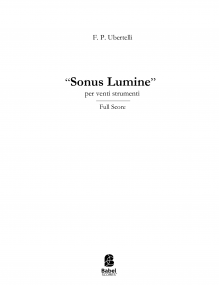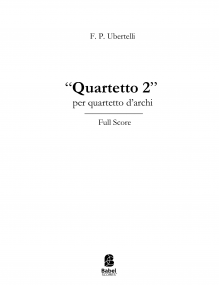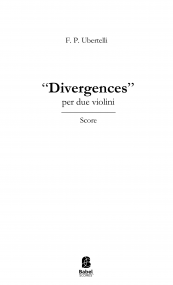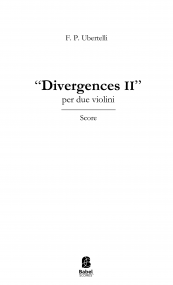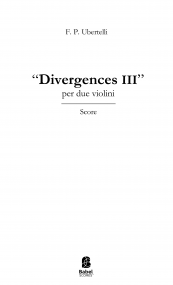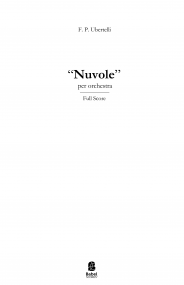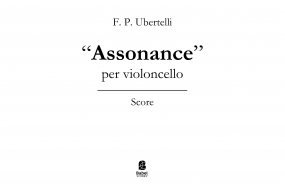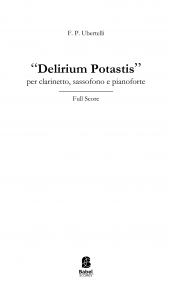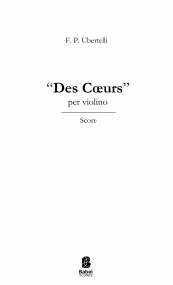
Francis Ubertelli
Play all audio recordingsBorn in 1968 in Quebec City, Canada, Francis P. Ubertelli began studying composition under Armando Santiago at the Conservatoire de musique de Québec. He later studied under Franco Donatoni and Azio Corghi at the Accademia Nazionale di Santa Cecilia in Rome, taking classes with Ennio Morricone and Luciano Berio. He graduated in 1996.
A few years later, following the death of his mentor, plagued by a profound aesthetic crisis combined with an extended nervous exhaustion, he quit music. That year, he met the shadow of the divine during a game of chess, which redirected his path in life. In 2011, he published his first novel in France, an essay comparing ongoing social changes with the 9/11 attacks, which he witnessed.
In 2015, after some years spent as a teacher, he returned to music following the birth of his son and a chance encounter with an old acquaintance. He studied at the University of Toronto under Gary Kulesha and earned his Doctor of Musical Arts degree in 2020. He is currently Professor of Music Theory at the Conservatoire de musique de Gatineau.
Francis P. Ubertelli has written numerous works for chamber ensemble and received grants and commissions from the Canada Council for the Arts and the Monte dei Paschi di Siena in Italy, the Istituto Italiano di Cultura, Toronto’s Arraymusic, the Charm of Finches flute quintet, the Sounds of Silence Project, Brussels’s Thelema Trio, the Fibonacci Trio, the Canadian Broadcasting Corporation, the Alizée flute ensemble, the Ensemble contemporain de Montréal, Antwerp’s Champ d’Action, the Alcan string quartet and the National Arts Centre Orchestra in Ottawa. In addition, selected works have been featured at the Conservatoire royale de Bruxelles’s trombone examination and at the Université de Montréal string quartet performance section. His music is played in Canada, the United States and Europe.
His works aim to blur the lines between a more traditional approach to writing techniques and futuristic gestures of the avant-garde compositional process. To that end, traditional musical materials subtly invoke eras of standard Classical repertoire, often nested within a single gesture enhanced in a large-scale periodicity, yet which never rely on the cultural conventions built up around these materials. Pitches present themselves in a hierarchy of importance, expressly giving precedence to the gesture—the gesture being that philosophical object passing by, through which the light of a form intuitively shines.
Chamber Group ( 2 - 4 instruments )
Quartetto 2 per quartetto d'archi (2018)
Divergences per due violini (2018)
Divergences II per due violini (2018)
Divergences III per due violini (2018)
Delirium Potastis per clarinetto, sassofono, pianoforte (2015)
Delirium Potastis per clarinetto, sassofono, pianoforte (2015)
Des Cœurs per violino (1997)
Divergences per due violini (2018)
Divergences II per due violini (2018)
Divergences III per due violini (2018)
Nuvole per orchestra (2017)
Quartetto 2 per quartetto d'archi (2018)
Sonus Lumine per venti strumenti (2019)

